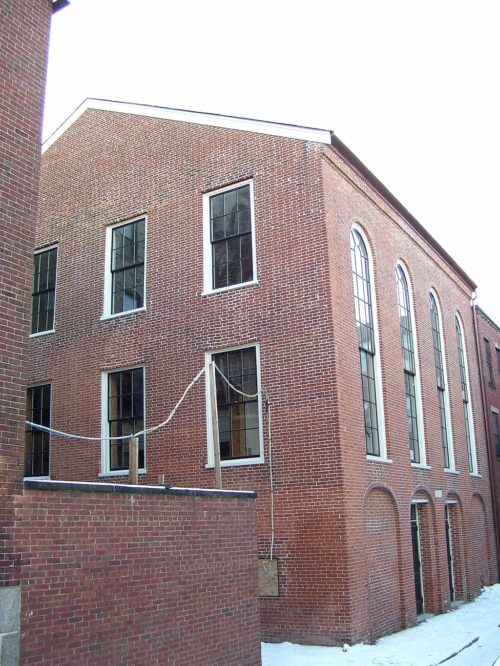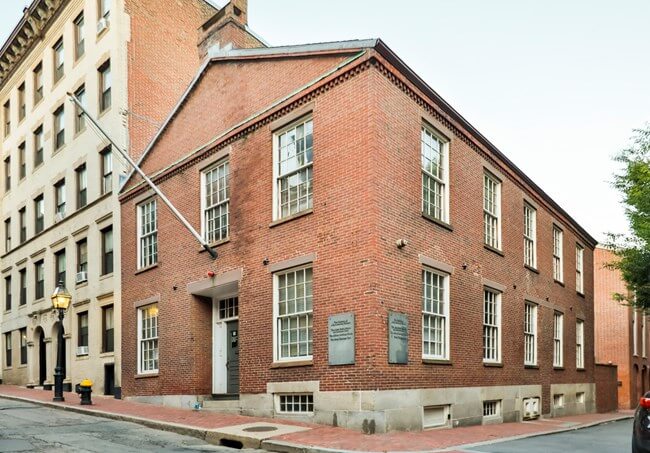Primus Hall
Primus Hall was an abolitionist, soldier, school master, and leader in Boston’s post-colonial period.
Primus Hall was born in 1756 to Delia Hall, a domestic servant, and Prince Hall, an enslaved man owned by William Hall until gaining his freedom in 1770. Primus was given as a baby to Ezra Trask, from Essex County, to learn shoemaking. Fortunately, Trask treated Primus as an apprentice, not a slave. At twenty-one, Hall gained his freedom from being “bound out” due to health issues, and worked as a truckman and farmer until 1776 in the area surrounding Salem.
During the Revolutionary War, Hall enlisted in the 5th Massachusetts Regiment. As part of the regiment he participated in the siege of Boston, crossed the Delaware with Washington, and fought in the battles of White Plains, Harlem Heights, Trenton, and Princeton. At other times he served with French forces, known as “sappers,” who marched under enemy fire to clear away obstacles for the rest of the advancing armies. After a year of service Hall reenlisted, at Washington’s “earnest request,” and was present for the capture of General Burgoyne and surrender of Lord Cornwallis. Hall also assisted in the fortification of Castle Island during the War of 1812.
After some time working as a steward, Hall returned to Boston in 1786 and married for the first time at Old North Church (then Christ Church) to Phebe Robson. Then, in 1798, he started a school in his home where 60 African American children studied. He made significant efforts to properly fund the school, and moved to the first floor of the African Meeting House in 1808. He continued his involvement in fundraising for the school until 1835 when the Abiel Smith School was founded. During this time Hall was remarried twice, to Martha Gardner in 1810 and Anna Clark in 1817.
Hall was a vocal advocate for education and abolition throughout his life. He signed petitions to the Massachusetts legislature concerning slavery as early as 1788, and supported William Lloyd Garrison’s paper, The Liberator, in the 1830’s. Hall was also a member of the Prince Hall Freemasons.
Hall stood up for his individual rights as well. In 1838, after being denied his pension as a Revolutionary War Soldier under the War Department’s assumption that he had been a servant, Hall was the subject of House Resolution 318, which acknowledged his honorable discharge by General Washington and service in the war by granting his pension. To prove his case, Hall and his pension agent collected testimonies from fellow veterans and community members.
Hall died in 1842 and was buried at Copp’s Hill Burying Ground. His obituary in the Boston Transcript noted that Hall was remembered for telling Revolutionary War stories to community youth:
“Mr. Hall was well known, particularly to the younger portion of our citizens, to whom he was in the habit of recounting scenes of the revolutionary war, especially the capture of General Burgoyne, and the surrender of Lord Cornwallis, at both of which he was present. He was attached to the Quartermaster General’s Department, and for about two years was in the military family of General Washington, of whom he spoke with that fervor of attachment which was common to all who were personally acquainted with that great man. He has departed full of years, to meet, we trust, the reward of a good and faithful servant.”
Article by Sebastian Belfanti, edited by Adam Tomasi
Source: Wikipedia; Find a Grave; National Park Service; Making Slavery History: Abolitionism and the Politics of Memory in Massachusetts (book); Jamestown-Yorktown Foundation; The Liberator Files; In Hope of Liberty (book); Standing in their Own Light: African-American Patriots in the American Revolution (book)









